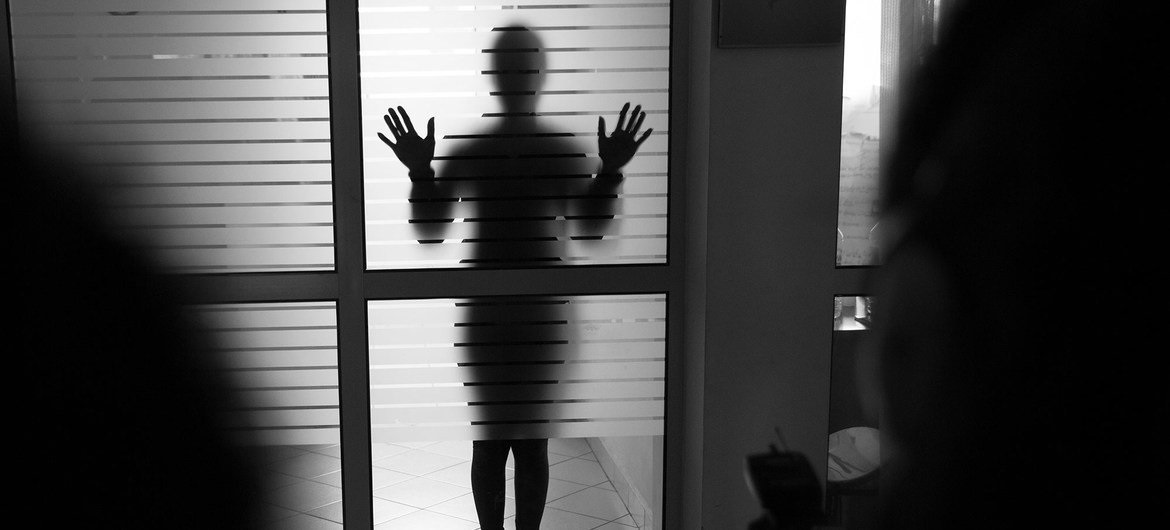Sexual harassment in the workplace in Armenia
Sexual harassment in Armenia
Sexual harassment in the workplace is a problem faced by women around the world. According to the UN, in the EU this phenomenon affects 40-50% of women — indecent proposals, unwanted touching, and other forms of sexual harassment at work. But in European countries, the law can protect victims. In Armenia, harassment at work does not even have a definition in the legislation, so it is no basis for disciplinary sanction or termination employment.
- How taking one’s own life is a solution? – stories and stats from Armenia
- More tenderness than in youth: Stories of couples who have been together for half a century
- Poverty
“I chose to remain silent and leave”
Marina graduated with honors and immediately received a job offer from one of her teachers. The conditions were so attractive that she accepted without hesitation.
“My teacher then held a high position. The first month everything was great. I got used to my new workplace, sometimes even in the morning I came to work with my teacher and his family in his car. Naturally, I talked along the way with his wife and children, and so it never occurred to me that this was possible,” Marina recalls.
But then things changed dramatically. One day, her former teacher asked her to stay a little longer at the end of the working day.
“He gave me a whole stack of papers and asked me to copy them. It was already late and there was no one in the office except us. I was standing at the photocopier when I felt that someone was hugging me from behind. I flinched, but I couldn’t even scream out of fear. Although it wouldn’t have made any sense since we were alone. My reaction made him move away a little, he asked me to calm down and began to say something,” Marina says.
He proposed sleeping together. When Marina refused, he peristsed, offering advantages at work; the only price was silence.
“I still remember that nasty conversation. He said: “If you want to succeed, accept my offer, I will not force you to do anything. It won’t bother me or you. I have a family that I’m not going to give up. You, too, will be free to build your life.” He explained that his proposal was ideal, if you think it over.”
After that she went to work for several days, hoping that the unpleasant thing was in the past. But after some time her boss repeated his proposal. Marina realized that she could no longer stay, so on the same day she wrote a letter of resignation:
“A few days later I told a close friend about what happened to me. I naively thought that this happened only to me. And she was very surprised when she said that it was normal, this happened to her too. In her opinion, instead of acting out a tragedy, you could just have a warm relationship and enjoy what you could get.”
Now Marina lives in the USA. She says the first thing she was warned about at work was about sexual harassment and the mechanisms that protect her:
“I learned much later that sexual harassment in the workplace in Armenia doesn’t even have a legal definition. But even if I had, I don’t know if I could protect myself at that age, in those conditions. I say this because I was afraid of condemnation, that if I spoke out, they would think that I was trying to destroy his family. I’m pretty sure that would have happened. That’s why I just decided to keep quiet.”
Results of the first study
Sexual harassment at work in Armenia is little studied. Last year, at the initiative of the Women’s Resource Center, the first study was conducted.
590 people from different regions of Armenia and the capital took part in the online survey. 94% of respondents were women under 39 years old.
• 42.7% of those surveyed had experienced some form of sexual harassment or experienced several at the same time.
• 32.2% of cases of sexual harassment occurred with women working in the service sector. Similar phenomena occurred in the system of public administration, education, IT and the NGO sector, but to a lesser extent.
• 51.4% of respondents were harassed by their boss, 37.7% by another employee, 9.3% by a client.
• 95.2% of cases of sexual harassment occurred in the workplace.
• 41.3% of cases of sexual harassment were observed in small teams with up to 20 employees, 25% in organizations with 20 to 50 employees.
• 94.7% of cases occurred on the day shift.
• 55.8% of employees voluntarily resigned after their experience(s). 26.9% continue to work in the same organization. In 9.6% of cases, the dismissal occurred at the initiative of the employer.
• 62.9% of those who were harassed by the manager, filed a letter of resignation, 19.7% continued to work in the same organization, 12.1% were fired at the request of the employer.
• 87% of those who were subjected to sexual harassment did not turn to the employer for protection, 98.6% – to any state or public body.
• 42.2% of respondents reported that their colleagues were also sexually harassed.
• The most common type of sexual harassment experienced by 23.1% of respondents is unwanted touching.
• Types of “verbal abuse” were also common: sexual jokes, unwanted comments about appearance and body, obscene suggestions.
The law is no protection
The Labor Code of Armenia does not mention sexual harassment at all. It does not define sexual harassment at work; it doesn’t seem to prohibit at all, much less offer protection.
So those who have been sexually harassed at work, mostly women, do not have mechanisms for any protection of their labor rights, including the constitutional right to decent work.
Under labor law, sexual harassment is not grounds for disciplinary action or termination of an employment contract.
Legal consultant of the Women’s Resource Center, lawyer Nvard Piliposyan, says that the center submitted legislative proposals to the Ministry of Labor and Social Affairs to amend the Labor Code:
“Although there is a general provision on the prohibition of violence at work, it is declarative in nature, since there are no clear definitions. Neither the employer nor the employee is clear on what phenomena are involved. We proposed to introduce into the Labor Code definitions from the relevant convention of the International Labor Organization, and to clearly state that both violence and harassment are prohibited in the workplace.”
According to Piliposyan, they propose not only to define and prohibit sexual harassment, but also to impose disciplinary action for them. In addition, employers must have a sexual harassment prevention policy. State supervision of the situation by the Labor and Health Inspectorate must also be carried out.
Otherwise perpetrators of sexual harassment will continue to go unpunished.
“We drew attention to another problem — in schools. Sometimes people who even face criminal charges, such as attempted rape or sexual abuse of a minor, continue their professional activities until a court decision.
Until there is a court decision, the employer has no reason to temporarily suspend them from work, although such behavior can be dangerous to others.So we also propose to define in the Labor Code such a right of the employer for such cases,” Piliposyan said.
Follow us – Twitter | Facebook | Instagram
Sexual harassment in Armenia






















